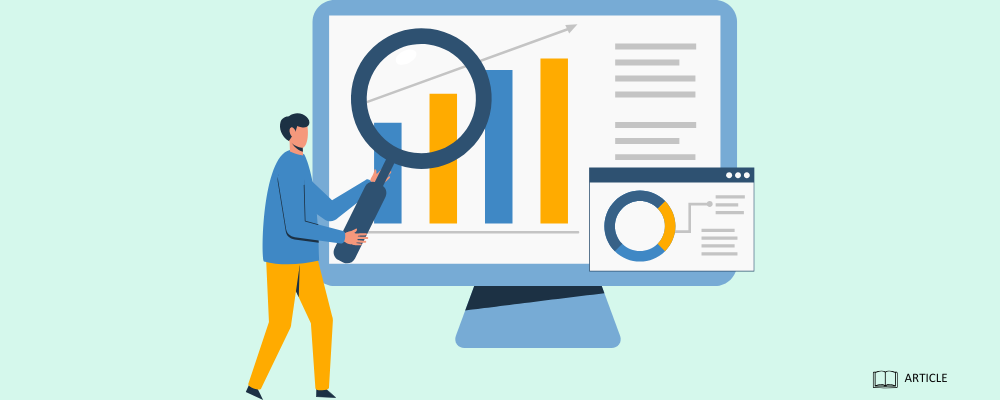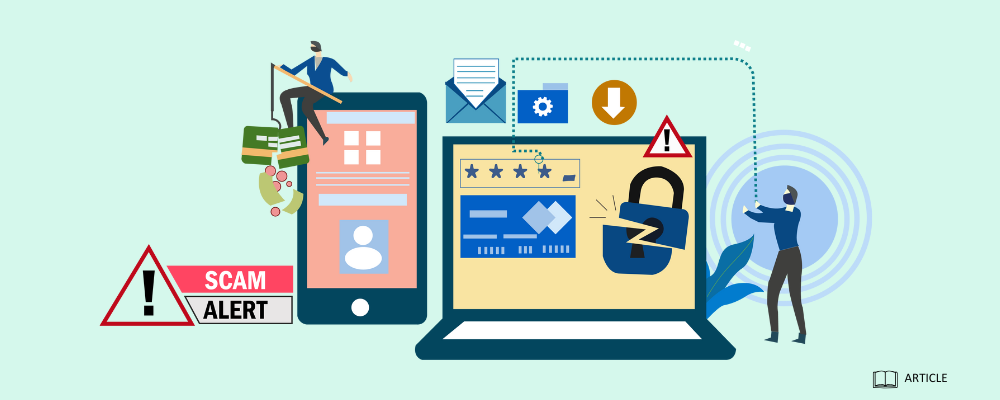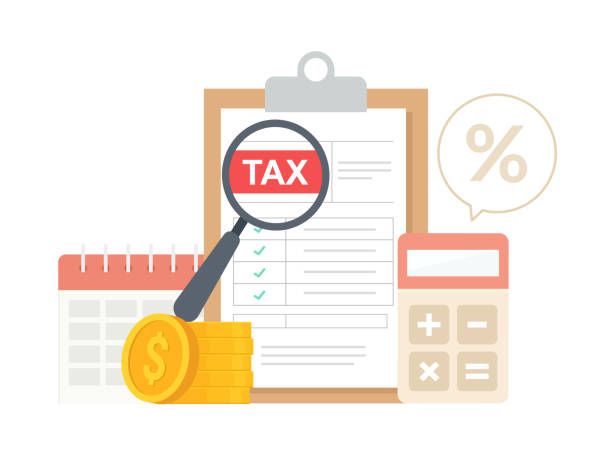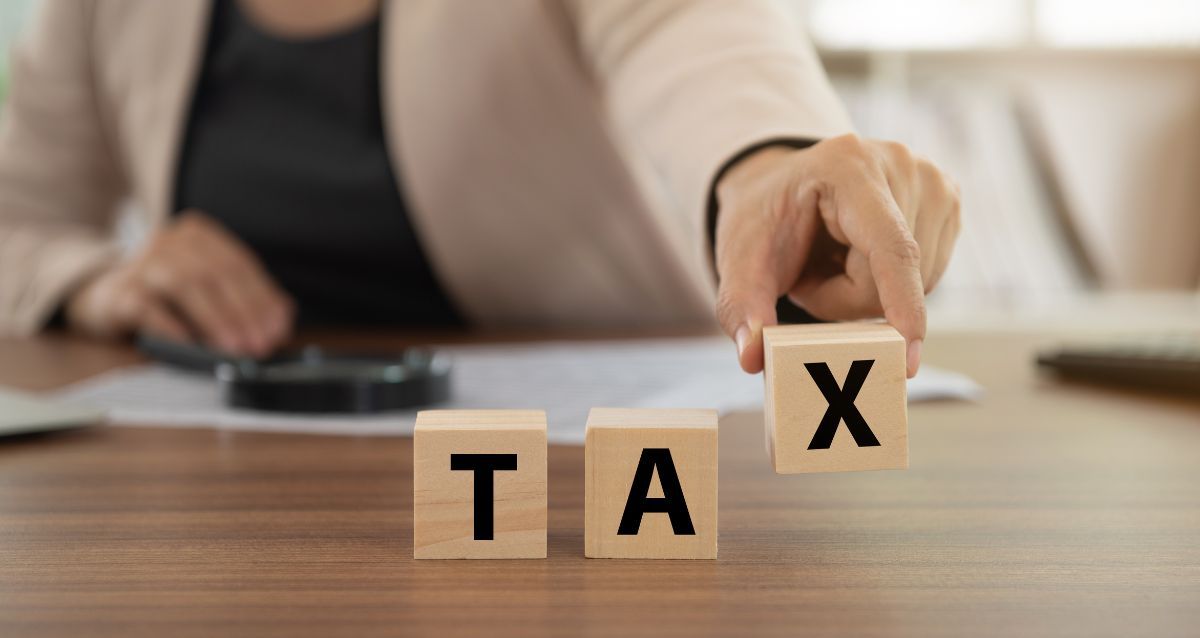Every Day I’m Hustlin’
Ryan Schirmer • August 21, 2024
With the rise of social media like TikTok, the thousands of ideas are spread by the hour on how to earn extra coin on the side. Being part of the ‘Gig’ economy such as ridesharing, freelancing or having a ‘Side Hustle’ like drop-shipping and social media content creation might earn you some spare cash.
If you’re earning money through a side hustle or gig work, it’s important to understand your tax obligations with the ATO. Here are some key points to keep in mind:
- Declare All Income: Any income you earn from your side hustle or gig work must be declared to the ATO, even if it’s a small amount. The ATO considers this income as assessable, and failing to declare it can lead to penalties.
- Register for an ABN: If you’re working as a freelancer or running a business as part of your side hustle, you may need to register for an Australian Business Number (ABN). This is necessary for invoicing and may be required by the platforms you use to find work.
- Goods and Services Tax (GST): If your earnings from your side hustle exceed $75,000 per year, you will need to register for GST and charge it on your sales. This applies to most goods and services, but there are some exceptions, such as income from Ridesharing which requires you to register for GST for your first $1.
- Deductions: The good news is that you can claim deductions for expenses related to your side hustle. This could include things like internet costs, equipment, software, or even vehicle expenses if you’re driving for a rideshare service. Keeping detailed records of these expenses is crucial for your tax return.
Tips for Managing Your Side Hustle Tax
- Keep Accurate Records: Maintain detailed records or use accounting software to keep track of all your income and expenses related to your side hustle. This will make it easier to complete your tax return and ensure you’re not missing out on any deductions.
- Set Aside Money for Tax: It can be easy to forget that the money you earn isn’t all yours to keep. Setting aside a portion of your income for tax can help you avoid a large bill at the end of the financial year.
- Seek Advice: the tax legislation can get very complicated very quickly; speaking to your accountant to discuss how tax will impact, getting into a right structure and managing cash flow is vital to the success of your business.
The post Every Day I’m Hustlin’ appeared first on Green Taylor Partners.
More GTP Articles

Data has evolved from being a byproduct of operations to a strategic asset that can drive growth, innovation, and competitive advantage. Small and medium-sized businesses (SMBs) that effectively harness the power of data analytics make more informed decisions, enhance operational efficiency, and gain deeper insights into customers. Here are ways SMBs can leverage data analytics to drive business decisions and grow. 1. Understanding Data A first step is to understand the type of data available and its potential value. Identify data sources, such as sales figures, customer demographics, website traffic, and social media engagement. Available data will vary by industry. For example, a retail store tracked purchase history and customer preferences through its loyalty program. This data enabled personalisation of marketing campaigns and promotions, resulting in greatly increased repeat purchases. 2. Choosing the Right Analytics Tools Your needs and objectives determine what tools you need. For analysing large datasets, consider Tableau or Power BI. For real-time analytics, platforms like Google Analytics or Mixpanel may be suitable. Cloud-based solutions are cost-effective and scalable, ideal for SMBs with limited resources. 3. Implementing Predictive Analytics Historical data can help forecast future trends and outcomes. For example, a software subscription-based service used predictive analytics to forecast customer churn. By targeting at-risk customers with retention offers, they reduced churn by 15%. 4. Improving Operational Efficiency Streamline operations and reduce costs by analysing processes and identifying bottlenecks. For example, a manufacturing company used data analytics to optimise its production processes and inventory levels. Lead times were cut by 25% after improved resource allocation. 5. Enhancing Customer Experience Gain insights into customer preferences, buying patterns, and satisfaction levels. For example, a hotel chain used data analytics to personalise guest experiences based on preferences and behaviour. Tailored services and promotions led to improved guest satisfaction scores and repeat visits. 6. Using Data for Strategic Decision-Making Inform strategic choices with data-driven decision-making. Use data to support decisions on entering new markets, launching products, or expanding the customer base. Leaders need to persuade themselves and others that they can achieve a positive Return on Investment through new initiatives. Data analytics provides the insights to assess future outcomes and quantify the probability of success. While data analytics alone can’t guarantee business success, it provides valuable insights that drive decisions and improve outcomes. How can you better understand and utilise available data?

The introduction of payday superannuation is set to transform how Australian businesses handle employee superannuation payments. Effective from 1 July 2026, employers will be required to make superannuation contributions in line with each payroll cycle, rather than on a quarterly basis. It is crucial for employers to make super contributions for eligible employees from the start of their employment to meet superannuation obligations and avoid penalties. While this change aims to improve employee outcomes, it also places a new layer of responsibility on business owners. What is Payday Superannuation? Under the current system, employers are required to pay superannuation quarterly. However, from July 2026, payday superannuation will mandate that super payments be made with each payroll cycle. This shift is designed to ensure employees receive their superannuation in real-time, reducing unpaid super issues and aligning with modern payroll practices. Benefits for Employers: 1. Simplified Payroll Processes Paying superannuation on payday can streamline payroll operations. Employers can manage wage and super contributions under a single schedule, simplifying their accounting processes. 2. Cash Flow Management Frequent, smaller super payments may ease the financial burden compared to larger quarterly contributions, potentially making it easier for businesses to manage cash flow. Challenges and Considerations 1. Cash Flow Implications Paying super more frequently could strain businesses with inconsistent revenue streams. It’s crucial to reassess cash flow strategies to ensure super is readily available during each payroll cycle. 2. Record-Keeping Accurate record-keeping is essential for effective superannuation management. Employers must maintain detailed records and ensure compliance with evolving regulations. For most businesses this will mean getting on board with a software that supports the payday super obligations. Fortunately, major accounting software platforms like Xero and MYOB have integrated features to support employers in adopting this approach. 3. Compliance Deadlines Employers will have 7 days to process the super from each pay cycle. If the obligation is not met, businesses will become liable for a Superannuation Guarantee Charge, which includes penalties and interest. Tip: You may wish to consider adjusting your payroll frequency. For example, moving from weekly to fortnightly cycles. This will reduce administrative workload and make it easier to effectively manage your superannuation obligations. If you would like any more information regarding Payday Superannuation, please contact us at Green Taylor Partners.

In addition to the many challenges of running a business, scammers present a growing (and formidable) risk. Reports from government agencies show they’re having a hard time protecting businesses from scammers. For example, Australia’s investment watchdog - the Australian Securities and Investment Commission (ASIC) - recently claimed to be taking down roughly 20 scam sites each day! What can business leaders do to counter this threat? First, let’s look at some typical examples of scams. Phishing Phishing occurs when scammers impersonate government agencies or large organisations like banks to trick business owners into revealing sensitive information. This can happen over email or text and the recipient usually clicks a malicious link that seems legitimate. The fraudsters often prey on fears and uncertainty, sending out fake updates about safety measures or offering access to supposed government subsidies. Compromised email accounts Email phishing becomes more complicated when hackers access legitimate email accounts and send links or fraudulent payment requests. These emails are especially dangerous because they’re hard to distinguish from legitimate correspondence. False billing In this case, scammers send fake invoices, hoping busy administrators won’t notice they’re fake. Small businesses face significant risk especially where one fraudulent payment could significantly impact cash flow. Supply scams Scammers can set up fake websites or social pages and sell nonexistent products. Buyers seeking something urgently or that they think is scarce are particularly prone to this scam. Overpayment scams More rare, perhaps, but this involves scammers overpaying for goods using stolen credit cards or fake cheques. Then they request a refund for the excess and, once the original payment fails, the business is left with the bill. So what can businesses do about scams? Here are 7 best practices. 1) Recognise that any person or business is a target. Scams are not only directed at small, unsophisticated businesses. Many vigilant, tech-savvy people have fallen victim. And the techniques of scammers continue to evolve. 2) Create a culture of suspicion: Verify the source of emails, SMS, or social media messages before responding or clicking on links, especially where sensitive information is involved. Be doubly suspicious where the sender implies urgency, a common technique of scammers. 3) Train your employees to recognise and report suspicious activity. Anyone can be targeted. 4) Double-check payment requests, especially those involving new bank details. Set up processes which require multiple steps, or involvement by multiple people, before payments are executed. 5) Strengthen password policies, because weak passwords are a common entry point for scammers. Make sure all business accounts have strong, unique passwords that change regularly. 6) Update software because outdated systems are an easier target for scammers, especially those engaging in phishing attacks. 7) Online monitoring tools like Google Alerts can reveal unauthorised use of the business name online. Scammers often misuse legitimate business names to seem credible to other victims. With no end to the threat of scammers in sight, it’s prudent for leaders to be ultra cautious and adopt strategies like those mentioned above. What should you be doing to protect your business from scammers?

Deductions You Can Claim: Clothing and Laundry Expenses To claim a deduction for any work-related expense: - It must directly relate to earning your income - You must have spent the money yourself, and not have been reimbursed by your employer - You must have a record or receipt to prove it If your total claim for work-related expenses is more than $300, you must have written evidence to prove all of your claims. Clothing and laundry expenses have special rules in terms of their deductibility. You cannot claim a deduction for the cost of buying, hiring, repairing or cleaning conventional clothing you buy to wear for work. For example, black work pants purchased from Target etc. However, you can claim a deduction for the cost of buying, hiring, repairing or cleaning work clothing that fits into any of these categories: - Occupation Specific - Protective - Compulsory Uniforms - Non-compulsory Uniforms (registered with AusIndustry) Conventional Clothing According to the ATO, ‘Conventional clothing ‘is everyday clothing worn by people regardless of their occupation. If the clothing could reasonably be worn outside of work and is not distinctive, it is not tax deductible, even if it is compulsory by your employer or only worn at work. For example: - business attire worn by office workers - jeans or drill shirts worn by tradesman Occupation Specific Occupation-specific clothing is attire that is necessary for certain jobs and distinctively identifies you as a person associated with that particular occupation. This type of clothing is tax deductible as long as it cannot be worn by multiple professions. For example: - Chef’s hat and apron - Pilot or flight attendant uniforms - Nurse scrubs Note that some items that are occupation specific, may also be considered compulsory uniforms. Protective Protective clothing includes items that you wear to protect you from any risk of illness or injury from your work activities or environment. This type of clothing must have a protective element to be considered protective rather than a conventional item. Protective clothing items are tax deductible. For example: - Construction workwear (high-vis vests, hard hats, work boots) - Medical personal protective equipment (PPE) - Fire resistant or UPF sun protection clothing - Any safety shoes or boots that may be steel-toed or non-slip. Compulsory Uniforms Compulsory uniforms are items that your employer makes compulsory to wear the uniform through a strictly enforced workplace agreement or policy. The uniform must be sufficiently distinctive to your particular organisation so it can be identified by anyone outside of the organisation. While many uniforms feature a logo, its presence does not determine whether the uniform is compulsory, as long as it meets the specified requirements. Compulsory uniforms are tax deductible. For example: - Police or firefighter uniforms - Fast food or restaurant uniforms - Military uniforms However, shoes, socks and stockings are generally not deductible unless they can be differentiated by conventional clothing by: - Being an essential part of a distinctive compulsory uniform - the characteristics (colour, style and type) are a distinctive part of your uniform that your employer specifies in the uniform policy Non-Compulsory Uniform Non-compulsory work uniforms are not tax deductible unless your employer has registered the design with AusIndustry. Single clothing items, however, cannot be registered. You can check with your employer if you are not sure whether your uniform is registered. Laundry, Cleaning and Repairs You can claim a deduction for the cost of cleaning and repairing items in these categories: - Occupation-specific - Protective - Compulsory - Non-compulsory clothing items registered with AusIndustry You may claim these expenses using the following provided by the ATO: - $1 per load if it contains only work-related clothing items - 50c per load if you’re washing work clothes with other items If you require dry cleaning or another specialist service for your work-related clothing, you can claim the actual expenses. However, you must have written evidence. If your laundry claim is $150 or less (not including dry-cleaning expenses), you can claim the expense and don’t need receipts. However, you can’t claim a deduction if your employer reimburses you for these expenses. Some tips: - If you are unsure whether you can claim a deduction for the cost of an item, keep all your receipts and records for your accountant to assess and advise you of the deductibility of the item. - Is your total claim for work-related expenses more than $300? You must provide written evidence for your other work-related expenses. This includes the $150 laundry claim that you would otherwise be able to claim without receipts. - Visit the ATO website using the following link for more information: Clothes and items you wear at work | Australian Taxation Office

1. Use the “Multiple Bank Accounts” We recommend using three main bank accounts for your business: Main Operating Account – for day-to-day expenses and receiving income GST Tax Account – strictly for GST and BAS lodgement obligations Wages & Super Account – for payroll, PAYG, and super contributions 2. Set Aside GST From Every Sale 1. If you’re registered for GST or have payroll obligations, it's important to set aside a portion of every sale to cover these liabilities. 2. Transfer a suitable percentage of each sale into your tax-related accounts. The percentage may vary based on your specific business needs and structure, but creating a buffer helps ensure you’re prepared for quarterly lodgements, unexpected tax liabilities, and timing issues. 3. Open separate tax accounts with your bank to prevent accidental spending of tax funds. 3. Plan for Wages, super and PAYG Withholding Even if you’re a sole trader or a small team, it’s critical to allocate a portion of each sale towards employee wages and entitlements. This should cover: · Salaries and wages · PAYG withholding · Superannuation · Workcover obligations 4. Track Your Expenses Weekly Use accounting software like Xero, or MYOB to: · Reconcile bank transactions as you go to avoid wrong accounted transactions · Track income and expenses in real time · Match payroll and GST accounts regularly Tip: Set weekly reminders to transfer GST and wages portions, don’t wait until end of quarter. 5. Stay BAS and Tax Ready Every quarter, you’ll need to lodge a Business Activity Statement (BAS). It includes: · GST collected · PAYG withholding · Any PAYG instalments due Having your tax and wage accounts pre-funded makes BAS lodgement smooth and stress-free, by having the money already sitting in your tax accounts, it becomes much easier to make arrangements for BAS payments without cash flow pressure. Conclusion Success isn’t just about increasing sales; it’s also about managing those sales with discipline. By setting aside appropriate amounts regularly into dedicated accounts, you'll foster a habit of tax preparedness and business stability. This allows you to focus on growth without the stress of last-minute tax shortfalls. If you're unsure how much to set aside, or how your GST and PAYG are calculated, get in touch with our accounting team and we can tailor a plan based on your business cash flow and help automate your processes.

